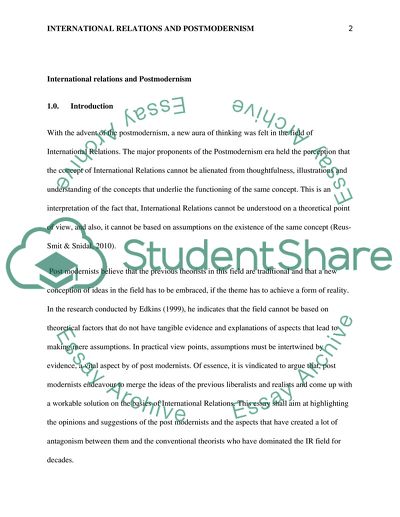Cite this document
(“International Relations and Postmodernism Essay”, n.d.)
International Relations and Postmodernism Essay. Retrieved from https://studentshare.org/culture/1593952-international-relations-and-postmodernism
International Relations and Postmodernism Essay. Retrieved from https://studentshare.org/culture/1593952-international-relations-and-postmodernism
(International Relations and Postmodernism Essay)
International Relations and Postmodernism Essay. https://studentshare.org/culture/1593952-international-relations-and-postmodernism.
International Relations and Postmodernism Essay. https://studentshare.org/culture/1593952-international-relations-and-postmodernism.
“International Relations and Postmodernism Essay”, n.d. https://studentshare.org/culture/1593952-international-relations-and-postmodernism.


